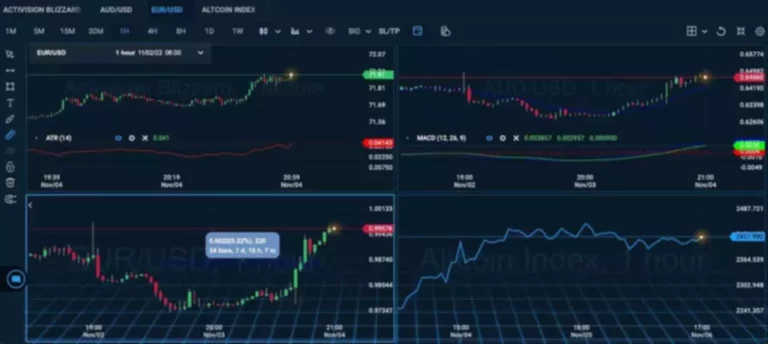Content
With revenue sharing, they get a percentage of the income generated from the clients activities over time. The affiliate approach often involves interaction with clients after referral as affiliates aim to drive as many potential customers as possible to the brokers platform. https://www.xcritical.com/ The primary distinction lies in their involvement with the client and the depth of their services. Finally, the clearing broker can even provide execution services to the introducing broker such as direct market access (DMA), connections to wholesalers, or even a suite of execution algorithms. Clearing is often bundled with other services such as custody, stock loan, and margin financing as part of a prime brokerage arrangement.
Licensing and Registration Requirements

As mentioned above, many of the clearing firms also offer other services like stock loan and execution algos. Fully Disclosed vs. Omnibus — the introducing broker may Decentralized finance disclose the identity of its customers to the clearing broker, in which case the clearing broker can deal directly with the end investor’s custodian. A retail broker, for example, might use an omnibus arrangement because it has many small customers such that it might be unwieldy to maintain separate accounts.
Key Advantages for Brokers to Collaborate with IBs
A financial professional will offer guidance based on the information provided and offer a no-obligation call to better understand your situation. Clearing firms are subject to oversight by a range of regulatory bodies, including the Securities and Exchange Commission (SEC) and the Commodity Futures Trading Commission (CFTC) in the United States. Market indicators are best defined as quantitative tools used by investors or traders to provide an approximation of what’s in store for future market movement. IBs should establish a compliance framework involving audits staying informed about regulatory updates and training staff on compliance protocols. Collaborating with professionals or compliance advisors can help ensure that all activities align with introducing broker vs clearing broker regulations. Moreover utilizing technology such as automated compliance tools can simplify the monitoring and adherence to standards.
Fully Disclosed vs. Omnibus Accounts
This intermediary service is essential because a transaction of size must be done with speed and at a low cost for the client. The executing broker earns a commission on the buy-sell spread and passes along the execution to the settlement and clearing group of the prime brokerage. A prime broker is a selection of services that investment banks, wealth management companies, and other major financial bodies offer to hedge funds and other clients. Clearing brokers, also known as clearing firms, are intermediaries between clearing companies and exchanges. They are responsible for clearing trades and ensuring the market’s reliability and efficiency. They also keep a record of these trades and conduct research on the information exchanges have given them.
Custodians, on the other hand, are responsible for retaining assets and financial instruments. They usually work with registered investment advisors or RIAs to secure and protect the assets of the client for whom the RIA invests. Lastly, prime brokers offer a variety of different services to hedge fund managers. One of these services is related to asset custody, which makes prime brokers similar to custodians to an extent.
Self-clearing and introducing brokers represent two different operational models, each with advantages and challenges. Trust plays a role in services and one misstep—like an erroneous broker recommendation or a data breach—can damage an IBs credibility. IBs make money mainly through commissions or a share of the spreads from trades executed by the clients they refer.
- The major position of an introducing dealer is to connect and bring together shoppers with brokerage firms.
- These clearing firms and services are responsible for the smooth operation of financial markets, such as forex, and handle the transaction confirmation, settlement, and delivery of trades on behalf of clients.
- Introducing, executing, and clearing broker-dealers are usually all separate firms.
- They then send that trade to a clearing house, who places the trade with the corresponding exchange.
- Although realizing the roles and responsibilities of prime and clearing firms sheds light on the complex world of financial markets, many lessons remain to learn.
- In essence, clearing firms are responsible for handling trades sufficiently, while broker-dealers partake in trading themselves.
You can community at commerce shows and occasions, begin a net site or social media page, chilly call potential customers, and attain out to those that could also be interested in investing. A broker-dealer who had a direct relationship with a shopper, but delegates the work of the floor operation and commerce execution to another firm. Introducing Brokers are able to cost a fee-per-trade unit for each asset class, markup (or markdown) rates of interest, or manually bill the shopper for companies rendered.
Brokerage firms often rely on carrying brokers so they can focus on higher-value tasks such as onboarding new customers or providing high-touch support to existing clients. These client brokerage firms are sometimes referred to as introducing brokers (IB). Designed to facilitate large, complex trading operations, a prime brokerage consists of various services that large financial bodies, like big investment banks, offer clients, such as hedge funds. These services include, but are not limited to, asset lending and cash management. As mentioned before, clearing firms, or clearing firmss, ensure the proper fund transfer, confirmation, and trades settlement. However, broker-dealers are financial bodies that participate in trading on behalf of their customers and themselves.
Introducing brokers act as facilitators of financial transactions, connecting investors with the necessary infrastructure and resources to engage in the markets effectively. Clearing agreements, also called carrying agreements, are contracts between introducing or executing firms and clearing firms. The agreement gives the responsibility of clearing a transaction to the clearing firm. Clearing agreements allow broker-dealers to enter the industry and provide full service to their clients without bearing the large start-up and maintenance costs needed to clear customer transactions. FINRA requires that carrying firms be FINRA members and that the responsibilities of each party be spelled out in the agreement.
Self-clearing brokers manage all trade processing internally, from execution to settlement, with direct control over operations and potential cost savings. However, this model requires significant investments in infrastructure and compliance resources to handle these complex processes effectively. InnReg is a global regulatory compliance and operations consulting team serving financial services companies since 2013. They are often involved in providing personalized services and sometimes even technical support to their clientele. Their strong connections with brokerage firms allow them to offer solutions that may not be easily accessible to individual traders who approach brokers directly.
This partnership is central to their role in financial markets, allowing them to focus on delivering value-added services and insights to their clients. A clearing brokerage settles and clears trades and ensures the market runs smoothly. Executing brokers are clearing brokers responsible for placing buy/sell orders and executing trades.

While they must recommend products suitable for a client’s needs and financial situation, they are not required to choose options that are necessarily the best for the client. FINRA oversees broker-dealer registration, examinations, and compliance with industry rules. This includes monitoring sales practices, customer interactions, and adherence to Anti-Money Laundering (AML) protocols. Learn about the role and definition of an Introducing Broker (IB) in the finance industry.
One of the most critical concierge services offered by prime brokers is risk and performance analytics. These brokers usually partner with risk management companies to provide hedge funds with daily risk and performance reports. Self-clearing brokers are among the most comprehensive clearing brokers available. They handle all aspects of the clearing process internally, including trade execution and settlement. To assume full responsibility for clearing and settlement functions, self-clearing brokers often have direct relationships with larger, more mainstream clearing companies. Introducing broker-dealers focus on client relationships while leaving trade execution and operational tasks to clearing firms, allowing them to serve a broad client base and align with regulatory standards.
Finance Strategists has an advertising relationship with some of the companies included on this website. We may earn a commission when you click on a link or make a purchase through the links on our site. Clearing firms help to reduce counterparty risk, which is the risk that one party to a trade will default on their obligations. They act as a counterparty to both buyers and sellers, managing risk and ensuring that trades are accurately and efficiently settled. All of the information on this website is protected by copyright and is legally owned by Quadcode as its intellectual property (hereinafter – Intellectual Property). Implementing Customer Relationship Management (CRM) systems, automated communication platforms and advanced analytics can streamline operations allowing IBs to better serve their clients.




Add Comment